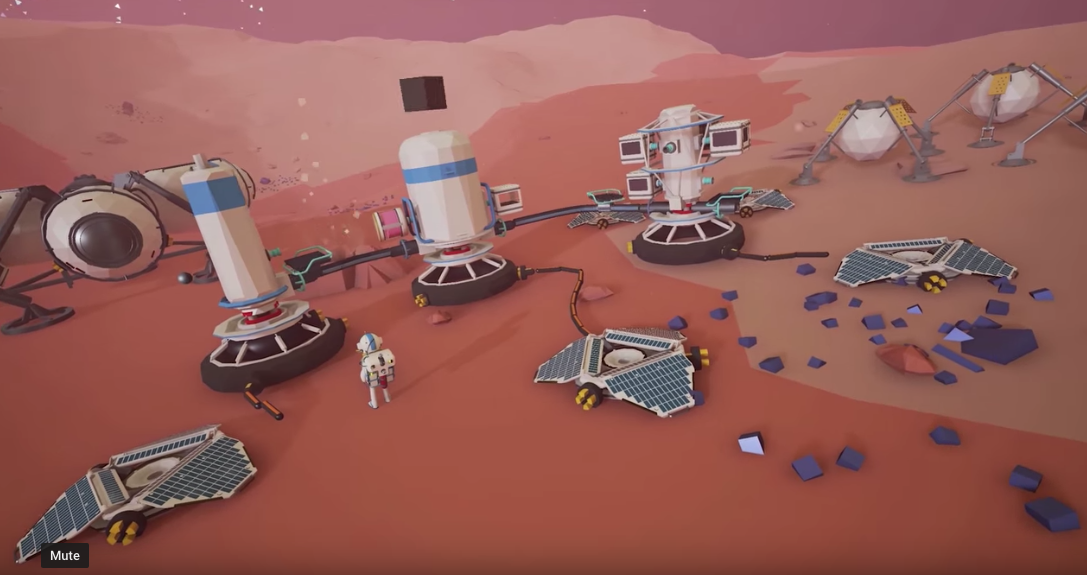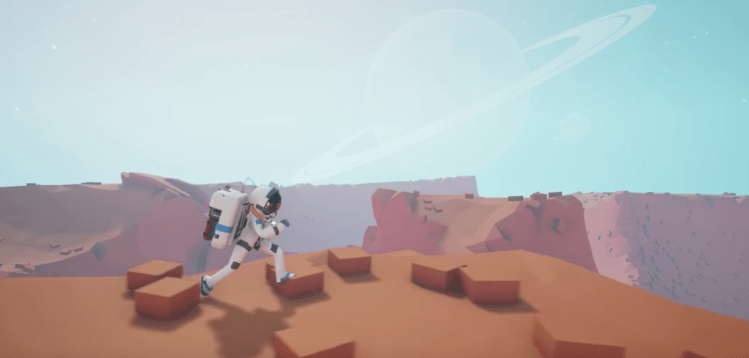This sponsored post is produced in partnership with Epic Games.
Through Epic Games’ long history, it’s been behind some of the game industry’s biggest titles, such as the Gears of War series, the Infinity Blade games on iOS, and the forthcoming Paragon and Fortnite. It’s also created one of the industry’s most popular, multiplatform game engines, Unreal Engine, which is used by dozens of developers to create their products, from BioShock to the Mortal Kombat games.
However, behind the scenes Epic has also helped out numerous developers with grants, contests, and increased exposure to their projects, including the February 2015 announcement of a $5 million fund to issue grants to Unreal Engine developers and awards for the best Unreal Engine games at this year’s E3 trade show in partnership with GamesBeat.
Two development studios — Los Angeles’ High Horse Entertainment and Seattle’s System Era Softworks — were selected by Epic to give talks at the upcoming GamesBeat 2016 event August 1–3 in Southern California. They’ll be among the five “lightning round” presentations, which gives each company just five minutes to cover its topic. The lightning round will be moderated by GamesBeat’s own Stewart Rogers, with the other presenters being Dima Veryovka (co-founder of Colabee Studios), Omar Siddiqui (CEO of Kiwi), and David Levitt (CEO of Pantomime Corporation).
High Horse Entertainment
High Horse was started by two software engineers — Jay Mattis and Timothy Rapp — who cut their teeth at Activision, building up a combined 20 years of development experience on such franchises as Call of Duty and Guitar Hero, but decided that they “didn’t want to keep making the same game for a decade.”
“We wanted to challenge ourselves,” Mattis says. “We took a really hard look at what our strengths were, what the state of the market was, and felt that…mobile is pretty saturated, but there’s still room to grow for indie teams in the sort of console and PC market. That’s what we decided to go after.”
The pair’s first project under the High Horse name will be called Disc Jam, which Mattis describes as “a mix between air hockey, tennis, and Frisbee.” It’ll be an easy-to-learn game, supporting games for 2–4 players (in any combination of local or online players). Plans are for the title to be simple to play, but enable gameplay at a very highly competitive level and ranked leagues. Disc Jam is currently targeted for release on PC (via Steam) and PlayStation 4, but Mattis says High Horse is interested in launching the game on other platforms. The pair is hoping to have the title out in Q4 ’16/Q1 ’17 timeframe.

Mattis said High Horse chose to use Unreal Engine, because it’s a way to do a lot with a little.
“If we wanted to go write our own engine, that’s certainly something we could do, but we found it’s really important to pick and choose your battles carefully,” he says. “Working with Unreal…we feel like we have that engine team, and they’re working on what they’re working on — and with the full source code, we can really get in there and change the things we need to change to make that work for us.”
Mattis’ lightning-round presentation at GamesBeat 2016 will focus on the transition from a 200-person development team at a Triple-A studio to an indie studio that’s comprised of just two guys. Despite being a small studio, they’re working on a project they still hope will have high production values, and the talk will touch on lessons they’ve learned, how they leverage their strategic partnerships, and their unique production methods.
System Era Softworks
Brendan Wilson, System Era’s co-founder, has a similar story about how the studio was founded in 2014: The six-person studio (five principals with one full-time contractor, spread between the studio’s Seattle headquarters, Toronto, and Salt Lake City) had extensive game development experience at various companies including 343 Studios, Tecmo/Koei, Ubisoft, and Valve, contributing to such projects as the Assassin’s Creed franchise and the Halo series. Despite all that Triple-A experience, though, Wilson said they had a “craving for something different, something smaller, something more nimble” with a higher level of personal satisfaction.
Astroneer is System Era’s debut project, a single-player game with co-op that builds off the team members’ mutual interest in aerospace technology and manned space exploration. With most of their previous Triple-A projects being centered around violence, they were motivated to create a game that was a radical departure from that style.
“[Having kids] changes your perspective a little bit,” Wilson explains. “I got really interested in making games that are completely accessible to everybody [and] that are completely non-violent. Astroneer has some survival elements and some dangers, but you’re never fighting anybody, you’re never shooting anybody, and there’s no blood. It’s meant to be a positive experience, a constructive experience, and something I’d be completely proud to have my sons play.”
Wilson says that Astroneer will be a sandbox game of exploration, adventure, and survival, “set in a completely procedural world, where you have full control over the environment. We like to say, if Minecraft is the LEGO of video games, we’re Play-Doh.”
You play as an Astroneer, which he says is “kind of a futuristic gold rusher,” and your mission is to land on a planet (each one is unique), and explore with tools that enable you to deform the terrain, build, and use the resources you find to craft all sorts of things.

Wilson reveals that the game was initially demoed for companies in another game engine, but the studio switched over to Unreal Engine because it was the artists’ preference for how quickly visual assets can be created. However, when Unreal Engine went open source, “that was really the clincher for us.” He says they didn’t want to have to rely on someone else’s support team for help if a problem cropped up or they hit performance bottlenecks. The real-time terrain deformation, for instance, requires a lot of multithreaded calculations, something that Unreal Engine handles easily, and being an open-source engine, his team can solve any problems themselves, usually in short order. The engine also enables speedy prototyping, so new ideas can be tested quickly and easily.
System Era is currently targeting Astroneer as a PC release on Steam, but isn’t able to discuss yet the other platforms for which the game may also be developed. There’s no firm release date at this point, but Wilson said the company is hoping to bring it out this fall.
Wilson’s talk at GamesBeat 2016 will elaborate on how hard it is to make a game, but how building a game studio is harder — especially when none of the team members have done it before. He says that simultaneously launching a studio and constructing a game is “like navigating shark-infested waters in a storm while teaching yourself to sail,” though with the big benefit of retaining creative and financial control of everything they do.
Sponsored posts are content that has been produced by a company that is either paying for the post or has a business relationship with VentureBeat, and they’re always clearly marked. The content of news stories produced by our editorial team is never influenced by advertisers or sponsors in any way. For more information, contact sales@venturebeat.com.

